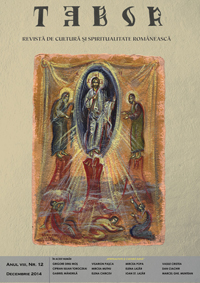„Ce are în comun Atena cu Ierusalimul?” De la literatura elină la literatura creştină
“What have Athens and Jerusalem in common?” From Hellenic to Christian literature
Author(s): Ioan St. LazărSubject(s): Christian Theology and Religion, Greek Literature, Cultural Essay, History of Religion
Published by: Renaşterea Cluj
Keywords: Hellenic ancient literature; Christian literature; Christian humanism; Christian apology;
Summary/Abstract: Starting from the Christian apologist Tertullian’s rhetorical question “What have Athens and Jerusalem in common?”, the author of this essay argues a positive response, highlighting the relationships of continuity and discontinuity, of similarities and differences between Hellenic ancient literature and Christian literature. So, linking together literary aspects to those of spiritual, cultural,philosophical, moral and social profile, the author outlines the historical confrontation between the Greek paideic humanism and the Christian philanthropic one, that took place in four stages until the fourth century, the century of the Fathers of the Church. Therefore, it evokes especially the contributions of Christian Apologetics (Origen and Lactantius) and of some modern scholars, including E. R. Curtius, J. Jeremias, A. Hauck, Ad. Harnach and others, as well as the contributions of Romanian researchers: among the contemporaries, Nicolae Corneanu, Virgil Nemoianu, Petru Pistol (the latter with an excellent study on Lactantius, as “Christian writer and paideic humanist”) and among the “classics”, Prof. Teodor M. Popescu, historian of the relations between church and culture, and prof. Ioan G. Coman, patristic scholar (similarities and differences between the two literatures, as well as original “literary genres” developed in Christian literature are taken exactly from his systematization). The author’s conclusion is consistent with that of prof. Ioan G. Coman and prof. Virgil Nemoianu about the possibility that the historical experience of the new humanism of the first Christian centuries to be fructified in achieving the ideal man of the modern Christian Europe and a new Christian humanism
Journal: TABOR. Revistă de cultură şi spiritualitate românească
- Issue Year: VIII/2014
- Issue No: 12
- Page Range: 75-87
- Page Count: 13
- Language: Romanian
- Content File-PDF

